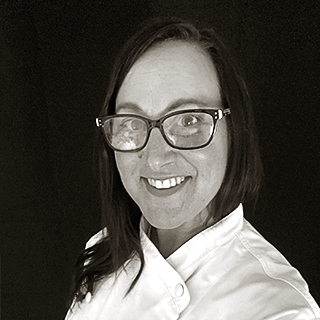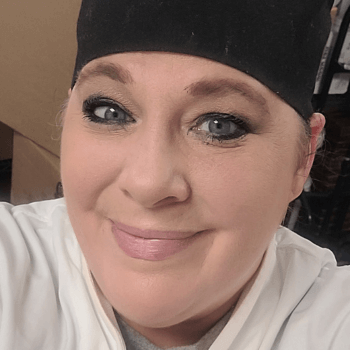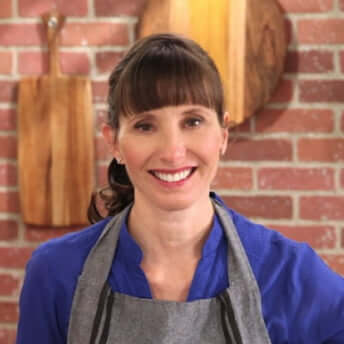The life of a pastry chef is one of delicious creativity. It’s also one of technical precision and attention to minute detail. It’s this fine balance of ingenuity and refinement that so many pastry chefs love!
If you’re feeling that draw towards the offset spatula and the piping bag, you may be debating between attending pastry school and honing your skills “on the job.”
This is an important choice that can have long-term ramifications for your pastry career. So here’s what you should know about pastry school before you take the next step.
What Does a Pastry Chef Do?
Before we dive headfirst into the universe of pastry school, it might be helpful to first grasp what pastry chefs do! Ultimately, pastry chefs oversee the production of all desserts and sweets that land on a consumer’s plate. Sometimes they branch into savory goods, but for the most part, pastry chefs dedicate most of their time to assembling mouthwatering goods like fruit tarts, cakes, scones, and more.
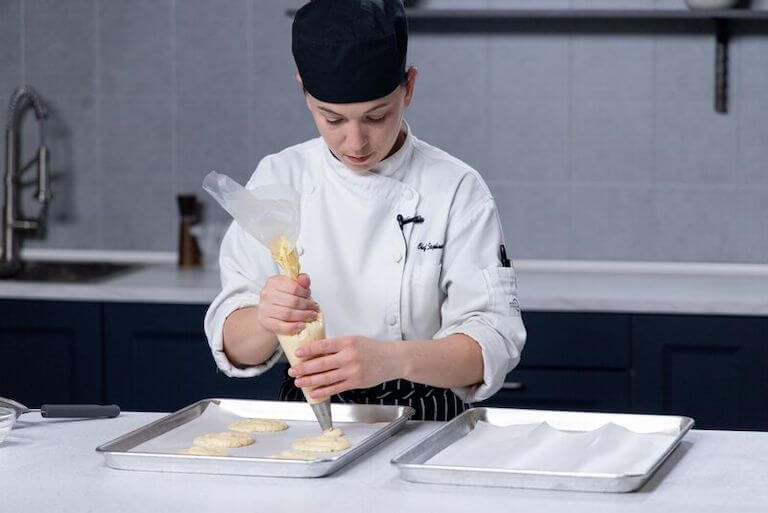
Escoffier pastry chef using piping and decorating skills to assemble Baked Alaska.
Whether they choose to work at a pastry shop or restaurant, pastry chefs are the ones who ideate menus, perhaps in collaboration with the executive chef. That said, this role falls into the “managerial” bucket, so being able to manage all aspects of pastry operations and multitasking is a must.
Pastry Chef Daily Job Responsibilities
- Oversee and manage inventory of kitchen products
- Clean and sanitize kitchen equipment
- Successfully prepare and execute menu items
- Decorate menu items for presentations
- Conduct training sessions and supervise kitchen employees
- Work closely with clients on special events or catering opportunities
- Implement quality standards for staff to follow
Pastry Chefs Can Benefit From an Education
Every great pastry chef usually knows the tools and skills of their craft like the back of their hand. The question is, will you secure that education on your own? Or will you get it from trained professional Chef Instructors in a more structured setting, like pastry school?
There have been successful pastry chefs who have done it both ways. Christina Tosi of Milk Bar attended a traditional pastry school. Legendary pastry chef François Payard learned from his father and grandfather—both pastry chefs themselves. He supplemented this education with classes in Paris. Both of these chefs are well-educated. The difference is how they got that education.
Without pastry school, you will have to rely on your own dedication and professional network to make sure you continue learning. Are you a self-starter? Will you spend your free time reading blogs and cookbooks, studying recipes, practicing techniques, and seeking out mentorship? It can take a long time to piece an education together in this way, but it can be done.
Explore the Future of Pastry Arts on The Ultimate Dish Podcast!
The Skills You May Explore in Pastry School
Pastry programs vary, but most include coursework in the following skills:
- Professional bakeshop work, such as mise en place and baking math
- How to bake cookies, pies, and tarts
- Cake baking, design, and decorating
- Menu design and management
- Foundations of bread, such as puff pastry, laminated, and yeasted doughs
- Fundamentals of baking, such as custards and dessert sauces
- Confiserie
Pastry School Can Build Good, Long-Lasting Habits
Here’s an interesting experiment. Find a pastry recipe that’s supposed to take an hour. Complete it in 40 minutes instead. Then assess your results.
Unless the laws of physics work differently in your kitchen than in the rest of the world, that recipe won’t likely turn out very well. Why? Because the rules of pastry are rules for a reason. Doughs must be kneaded to strengthen the gluten that gives it its finished shape and texture. Laminated dough must stay cold to prevent the butter from melting out. Baking times and temperatures let batters cook through without drying out and deflating. Cutting corners on recipes like these could lead to disaster.
Pastry School Can Give You Access to Hands-On Industry Experience
On top of forming foundational habits that can boost your career, pastry school can open doors to hands-on training you may not find on your own time. For example, students enrolled in Escoffier’s Baking & Pastry program must complete one to two hands-on industry externships as a requirement before graduation.
Whether you choose to fulfill this at an acclaimed dessert shop or eatery, this is your chance to apply your learned skills in the most tangible way possible. This type of unparalleled immersion not only can set you up for success but can help facilitate lasting network connections, which could lead to your first paid job.
Pastry Chef Training Certifications Can Help You on Your Way
Unlike in some careers, certifications and credentials are not required to be a pastry chef. At first glance, this may sound like becoming a pastry chef is an easier or more accessible path. But it also means that it can be a challenge for potential employers to assess your skills—especially in the beginning when your resume is short.
A degree or diploma from a baking and pastry program proves that you have put in the time to learn and practice the basic skills. Pastry chefs can trust that you know fundamental baking terminology and techniques and that you won’t be starting from scratch. This can make pastry cooks with degrees more attractive candidates.
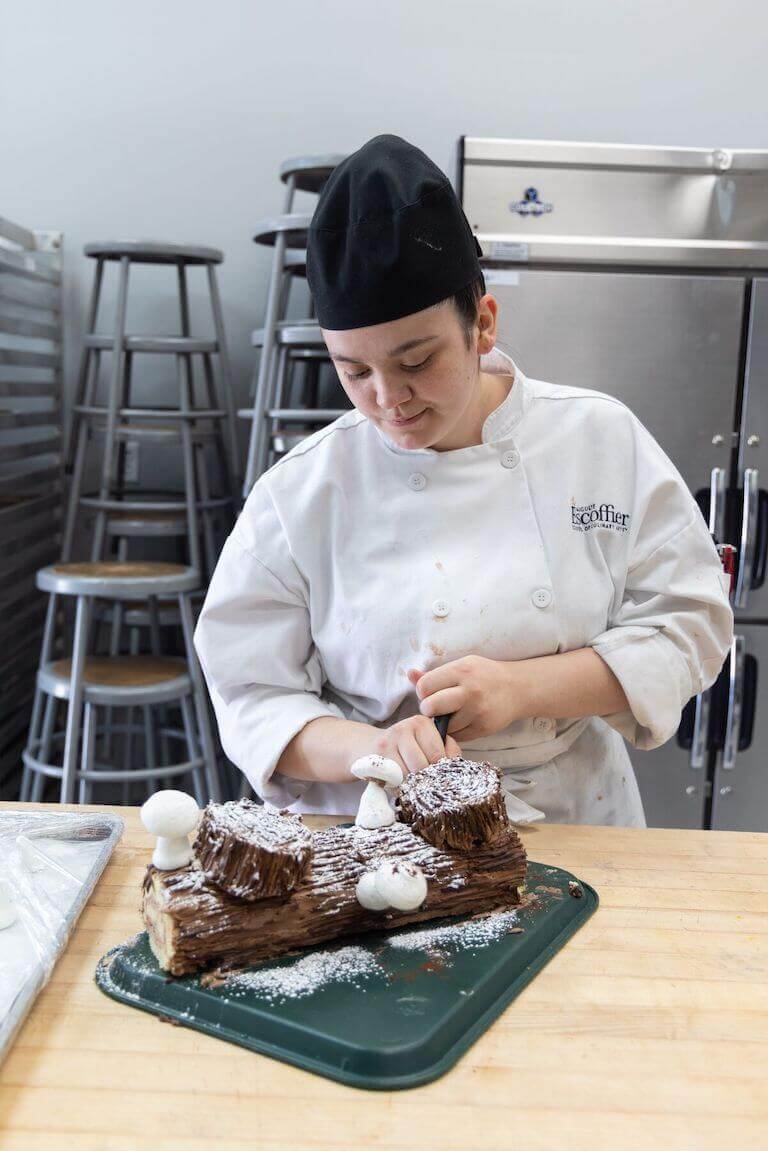
Escoffier Baking & Pastry student showcasing decorating skills in pastry arts class.
Additional Pastry Certifications to Consider
After a degree or diploma from pastry school, there are additional certifications you can get to prove your bona fides. These credentials are recognized and respected among the baking and pastry community, and they may elevate your future career.
The American Culinary Federation offers six levels of pastry certification, starting with Certified Fundamentals Pastry Cook™ and moving all the way up to Certified Master Pastry Chef™ and Certified Culinary Administrator™. There are only 11 CMPCs™ in the nation, including Frank Vollkommer, Escoffier’s Culinary Education Specialist.
The Retail Bakers of America also has five certifications. The Certified Journey Baker is the introductory level, building up to Certified Master Baker. While none of these certifications explicitly mandate a pastry school education in order to be eligible, they do have extensive work and skill requirements. And in Certified Master Baker Colette Christian’s experience, the best way to get started is with an education.
Start Your Career with a Built-in Network
One of the biggest benefits of attending a pastry program is the people you can connect with! Strong industry relationships can help you in so many ways.
Your Pastry School Classmates
Whether you attend school in person or online, you’ll be building relationships with your fellow students. On campus, you could be working together in teams to complete a baking task. In the online programs, you might be chatting via your class forum, sharing tips and ideas with your peers.
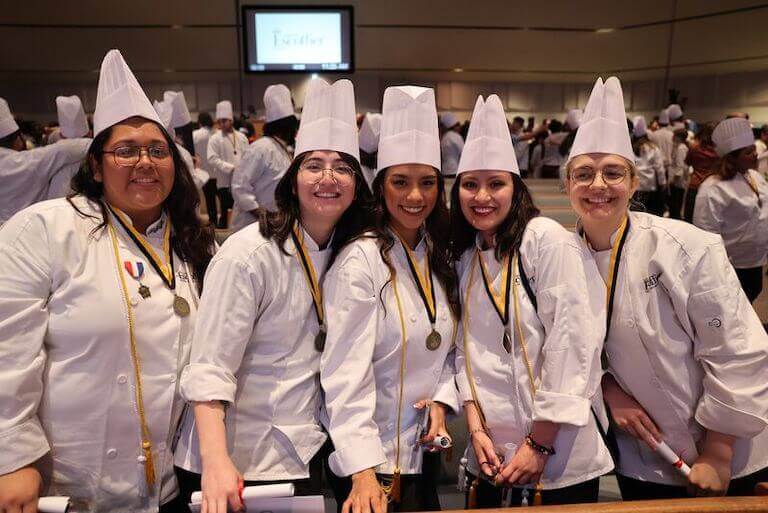
Escoffier students may form lasting friendships through class collaboration.
Your Pastry Chef Instructors
Chef Instructors at Escoffier’s Baking & Pastry programs are successful chefs with plenty of industry experience. They’ve worked in Michelin-starred restaurants, started their own bakeries, written cookbooks, been on television, and received major accolades. These instructors are devoted to their students and may be willing to provide long-term mentorship to some.
For example, Chef Dana Heider holds over a decade of professional experience in pastry arts and also runs her own boutique pop-up bakery, Snowbird Pastries in Charleston, South Carolina. She’s uber passionate about using fresh local ingredients to make delectable Greek pastries and sourdough baked goods. With so much knowledge at her fingertips teaching and working both front of house and back of house, Chef Dana finds the most joy in helping students achieve their baking and pastry career goals.
Career Services
Outside the classroom or kitchen, there is more help to be had. All Escoffier graduates have access to ongoing Career Services support even after graduation. This includes resume and interview prep assistance, job boards, career planning, and industry referrals.
With the combination of fellow graduates, Chef Instructors, and Career Services, pastry school students can get more than an education. They can also get a built-in network of like-minded pastry enthusiasts that they can grow with for years to come.
Alumni Association
After graduation, you’ll have access to the Auguste Escoffier Alumni Association where you can stay in touch and meet fellow grads. Some will be further along in their careers, and they can be valuable sources of advice and possibly even job opportunities.
So Do You Have to Go Pastry School?
Pastry chefs have found success both with and without formal education. But getting that degree or diploma can start your career on the right foot with good habits, reliable mentorship, and a crew of friends in the industry.
To glean more details about Escoffier’s Baking & Pastry programs, contact us for details about the curriculum and financial aid.
IF YOU FOUND THIS ARTICLE HELPFUL, TRY THESE NEXT:
- What Restaurant Managers Are Looking for in a Pastry Chef Hire
- 6 Advanced Baking Techniques Every Pastry Chef Should Know
- 7 Cake Decorating Techniques Every Pastry Chef Needs to Know
*Information may not reflect every student’s experience. Results and outcomes may be based on several factors, such as geographical region or previous experience.

